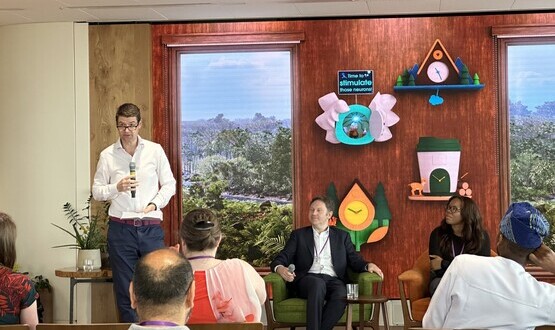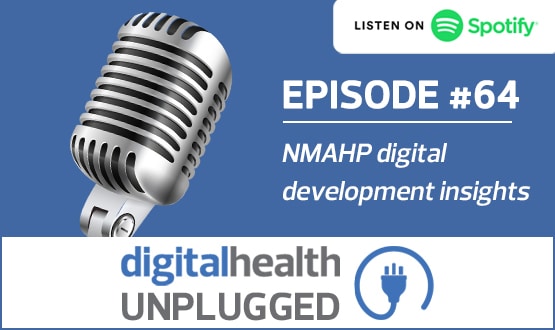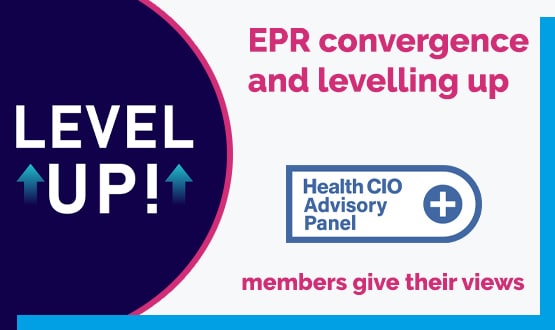Finding the right path to a digital career in the NHS
- 18 February 2019

It’s a decade since Aasha Cowey started the role which would set her on the path to a career in digital health. But she says that for her and others like her, working out how to be a member of the next generation of digital leaders is not always an easy proposition.
It was a role as a 999 emergency medical dispatcher for the London Ambulance Service that set Aasha Cowey onto the path of a career in digital health. The job was a hard one, she says, but it shed light on the array of possibilities for healthcare technology.
“There was so much opportunity to use technology in a way that would be better for both patients – especially those who didn’t actually need to go to hospital – and would help the hardworking operational staff deal with day-to-day pressures,” remembers Cowey.
Digital spark officially ignited, she went on to secure administrative and data roles before securing a place on the health informatics specialism of the NHS graduate training scheme. In many ways, it was an inspirational time. “I got to push myself with brilliant leadership training, had access to senior people for mentorship and observing, and begun studying for my Health Informatics MSc.”
But it also highlighted what Cowey now understands as a distinct lack of clear career pathways for those passionate about the potential of healthcare digitisation.
“I didn’t want to be an analyst and that seemed to be the main opportunity presenting itself to me for my final placement,” she reports. “I didn’t feel I would gain broad enough skills by doing another analyst role so instead I picked a placement where I went onto develop a neurology strategy and project led primary care co-commissioning for the South region.”
Feelings of confusion
That Cowey’s desires for her digital career didn’t mesh with the opportunities that seemed to be available at the time led, she says, to feelings of confusion and disillusionment.
“I joke that maybe I was a bit ahead of my time in what I wanted to achieve,” she reflects now. “I was interested in systems that would enable clinicians to do their jobs properly, or applications that would make self-care and prevention a reality, mechanisms that meant patients weren’t conveyed to hospital because we didn’t have accurate information about them.
“The entry level roles were reasonably clear. The CIO/director roles seemed clear. The foggy haze in the middle really wasn’t. I probably got a reputation for being a bit of a troublemaker on the scheme for pushing this – only I was probably pushing something I couldn’t really articulate.”
Five years on from the start of her graduate trainee days and Cowey is optimistic that things are now easier for those coming up behind her.
“The way a lot of teams in the NHS were set up then made it difficult to find anything other than analyst or very technical digital roles in the past. Things tended to be quite siloed in traditional IT departments,” she reflects.
The times are a’changing
“I would observe it’s really in the last three or four years that things are slowly getting better. The sort of role I envisaged is emerging thanks to the development of transformation teams and also the realisation that IT projects do not work without buy-in from the board and wider teams.”
The work of Fed-IP, BCS Health and Health Education England is all making a difference, she says. But that’s not to say that every question has been resolved. “I think we also need to consider what skills are necessary in this area. People like me are supposed to be the next digital leaders. Does it matter if some of us don’t have technical skills? Is it more about networking, influence, change management?”
“I’m also finding more roles are being geared up for clinical leadership,” she says. “I don’t dispute this at all and I think it’s a great direction – but it adds another level of complexity about where I fit in. The roles need to be complementary and play to the individuals’ strengths, clinical and non-clinical respectively.”
Networking and “getting to know some brilliant people in this space” has helped combat the sense of disillusionment and loneliness, she says. But it’s also served to once again highlight the lack of distinct career paths. “More than one person has said to me that it’s an art not a science – be prepared to go up, down, across, diagonal.”
Researching the path
To get a sense of exactly what paths have looked like – and what they could and should look like in the future – Cowey is about to launch a research project. She’s gained funding as part of the Building a Digitally Ready Workforce programme, and will be exploring “the reflections and paths of those who have reached CIO or other senior informatics posts, as well as finding out about the motivations and aspirations of current graduate trainees”.
The hope is the work will help develop an understanding of how to attract and then develop informatics leaders, right from the very start of their careers.
What the research will show is of course not yet certain. “I’m pretty sure however that I am not alone on this journey of trying to find the right opportunities in digital health,” Cowey says. “I’ve spoken extensively about it over the last five years from anyone who will listen really, from my fellow informatics trainees to some of the most respected CIOs we have, and there’s a recognition that career paths still aren’t clear.
“My own career path has recently taken me to the digital transformation team at South, Central and West CSU as a programme manager – which I am really enjoying – and it is well recognised by the senior management team that this is an area that needs support.
“I hope that through working with groups such as the Health CIO Network, Health Education England, OneHealthTech and the NHS Digital Academy I can share any learning and support the brilliant things that are taking off.
“It feels as though the right people and organisations are connected to get this right,” she concludes.
Aasha is planning to launch her research project within the next couple of months. More details will appear in due course on the Health CIO Network Discourse, and she also welcomes contact from anyone interested in finding out more – you can leave a comment below.





1 Comments
“I think we also need to consider what skills are necessary in this area. People like me are supposed to be the next digital leaders. Does it matter if some of us don’t have technical skills? Is it more about networking, influence, change management?”
The answers to these questions are yes and no, respectively; it’s a balance of both technical know-how and the ability to influence and lead. If you put people in charge that don’t understand how their project/department is supposed to achieve, how can they expect to deliver an efficient and effective service? There’s no need to understand the nitty gritty but some technical know-how will mean they don’t end up, for example, over-promising and under-delivering because they don’t understand how complex it is to achieve certain milestones.
Comments are closed.